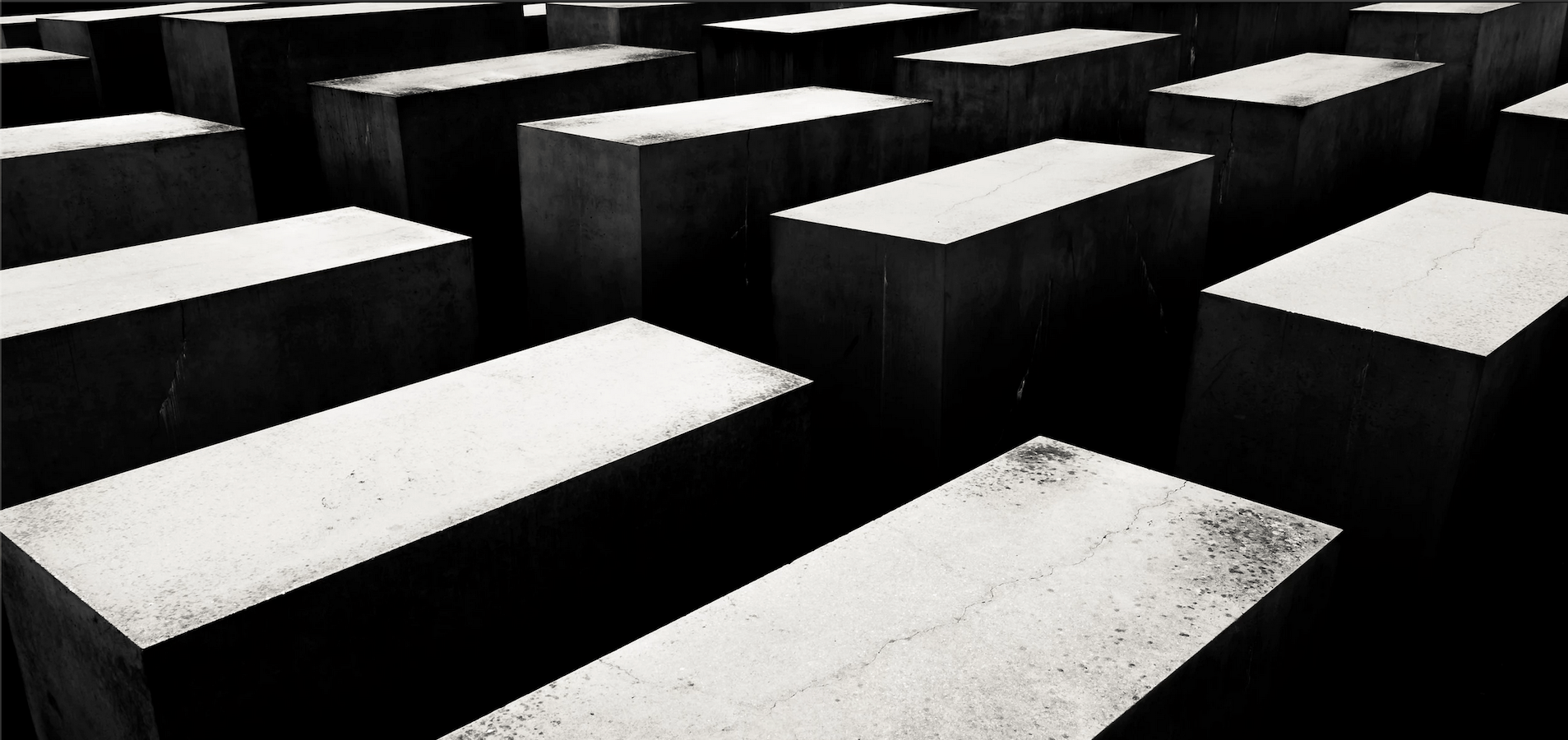
What Did Rabbi Akiva’s Students Do Wrong?
Dear JITC-
What did Rabbi Akiva’s students do wrong? Whatever they did, isn’t killing 24,000 of them a bit much?
Thanks,
Daria
Dear Daria-
Thanks for your question. Allow me to flesh it out a bit for the benefit of those who may not have the necessary frame of reference.
The sefirah period, which lasts from Pesach through Shavuos, is a period of quasi-mourning during which we don’t get haircuts, listen to music, or engage in other behaviors associated with joy. (The exact dates during which the mourning is observed is a matter of various customs, which would be a good subject for another day.) The reason for this mourning period is explained in the Talmud (Yevamos 62b) as follows:
“Rabbi Akiva had 12,000 pairs of students from Gevat to Antipatris (in the North), all of whom died in the same period of time because they did not show one another the proper respect. The future of Torah was in jeopardy until Rabbi Akiva went to the South and taught Torah there. His later students included Rabbi Meir, Rabbi Yehuda, Rabbi Yosi, Rabbi Shimon and Rabbi Elazar ben Shamua, who preserved the study of Torah and transmitted it to future generations. Rabbi Akiva’s earlier students died in the period between Pesach and Shavuos. Rav Chama bar Abba – some say Rabbi Chiya bar Avin – said they all died an ugly death; Rav Nachman clarified that this refers to diphtheria.”
It should be noted that the Talmud was compiled during the era of Roman occupation and many stories are written in code to avoid censorship or political repercussions. It has been suggested that Rabbi Akiva’s students died in battle as part of the Bar Kochba revolt, or were executed as a consequence of it. Rav Sherira Gaon (d. 1006) suggests that they were martyred; Rav Yosef Eliyahu Henkin (d. 1973) said explicitly that “died of a plague” is code for “died fighting the Romans.” (There are others who say this, and it’s widely accepted in academic circles, so it’s surprising to me that this interpretation is not better known.) But whether Rabbi Akiva’s students died of a literal plague or of a plague-as-code-for-the-Romans is immaterial as, either way, our original question remains.
From the fact that we observe a period of mourning for these students, we can easily infer that they were righteous despite this particular shortcoming. That being the case, it honestly doesn’t surprise me if they were held to a higher-than-average standard, because that’s consistent with God’s “standard operating procedure.”
Imagine a brand-new shirt, sparkling white. The tiniest spot on it is a glaring stain. When you’ve had the shirt for a while and it’s getting kind of dingy, the spot doesn’t show as badly and it won’t bother you as much. By the time the shirt is all gray and covered with oil and grease from working on your car with it on, you don’t even care if you drip soup on it because who’s going to notice? Spiritually speaking, people are also like that. Most of us are gray and stained, or at least a little dingy – a tiny spot like not extending sufficient honor to our colleagues is barely going to show. But the righteous are like new white garments – a little stain in really going to stand out. It totally ruins it. So a defect that’s minor to you and me is glaring in truly great people.
Consider how Moshe was punished for hitting the rock in Numbers chapter 20. There is some discussion as to what Moshe “really” did wrong. I favor the explanation that his “sin” was that he lost his temper with the Jews when he yelled, “Listen up, you rebels!” at them in verse 20:10. But regardless of the interpretation, all the potential “sins” of Moshe have one thing in common – they all seem pretty minor. Certainly not deserving of Moshe being unable to enter Israel after all he had done! The answer is because Moshe was Moshe. Everyone looked to him as their role model. Accordingly, he was obligated to adhere to a much higher standard of behavior.
The same is true of Nadav and Avihu, the sons of Aharon who died during the inauguration of the Mishkan (Tabernacle). Their crime was apparently bringing an incense offering that was not commanded (Leviticus 10:1). As with Moshe, there is some discussion as to what their sin really was (ruling in front of their teachers, asking when they would assume leadership, drinking before performing the service, etc.) but the same fact remains: none of their potential “sins” really seem to be deserving of death. Again, this is not because they were lesser, it’s because they were greater. The Torah tells us as much when God says, “I will be sanctified through those who are close to Me” (10:3). Nadav and Avihu were held to a higher standard specifically because of their greatness.
We see elsewhere in Chumash (and throughout Tanach) that the righteous are held to higher standards, so it’s not a great leap that Rabbi Akiva’s students might have been punished harshly for a minor flaw because of their greatness.
I have seen other explanations, such as that Rabbi Akiva’s students were being groomed to be the Torah leaders of the next generation but they demonstrated that they lacked one of the character traits necessary for proper acquisition of Torah (see R. Chaim Vital). Another idea is that what seems like proper respect to you and me is insufficient when one is a student of Rabbi Akiva, who is famous for the opinion that “love your neighbor as yourself” is the central theme of the Torah. I would like, however, to share an idea that occurred to me for which I have seen no support.
Imagine I said to you, “Bob died in his sleep because he didn’t have a carbon monoxide detector.” You might derive a lesson from that – that it’s important to have a carbon monoxide detector in your home (which it is) – but would you infer that Bob was Divinely punished with death over his lack of such a detector? Probably not. We recognize that Bob’s death was a natural occurrence (as much as any death is) and that Bob merely lacked the means to protect himself against it.
That being the case, let’s re-read the Gemara’s first sentence: “Rabbi Akiva had 12,000 pairs of students from Gevat to Antipatris, all of whom died in the same period of time because they did not show one another the proper respect.”
Maybe that doesn’t mean that God actively smote them because of this flaw. Maybe death from the diphtheria epidemic (or the Roman occupation) was the “natural” course of events. Rabbi Akiva’s students were so great that they might have been deserving of miraculous salvation except for one thing: they didn’t honor one another sufficiently. According to this reading, they weren’t killed because of their shortcoming but this shortcoming kept them from meriting Divine intervention. (For more about the idea that greater spiritual perfection equals greater Divine protection, see here.)
I think that such an approach is not unprecedented. Consider, for example, the mei’il (robe) worn by the Kohein Gadol, the hem of which was ringed with small bells. Exodus 28:35 says, “It shall be upon Aharon to perform the service; its sound shall be heard when he goes into the holy place before Hashem, and when he comes out, so that he not die.” From the language, it would seem that dying was the natural consequence of entering the Holy of Holies and the mei’il served as Divine protection against this reality.
Like I said, applying this logic to Rabbi Akiva’s students is my own idea; if any well-versed readers know of a source who theorizes such an approach, I’d love to hear it. But even if you don’t accept my hypothesis because I can’t cite precedent for it, my earlier point still stands: greater people are held to higher standards. If the students of Rabbi Akiva did indeed perish for such an offense, then they were on a truly high spiritual level and mourning the loss of what they could have contributed is an appropriate response on our part.
Sincerely,
Rabbi Jack Abramowitz
JITC Educational Correspondent
If you found this content meaningful and want to help further our mission through our Keter, Makom, and Tikun branches, please consider becoming a Change Maker today.








2 comments
Sort by
With all due respect, I think this question touches on a much bigger theological issue for Judaism, namely how to account for the fact that bad things happen to good people (and, to a lesser extent, good things seem sometimes to happen to bad people). As far as I know (and please correct me), Judaism has, in various ways and in various times, essentially answered this question by positing that the good people must have done something bad and God is punishing them. Or they did something bad in a previous life. Or their parents did something bad before they were born (eg the death of David’s first child with Bathsheba). Or somehow someone entirely different did something bad and it somehow boomeranged on the unfortunate person who suffered. \
I realize that not all bad events are explained in this manner, but certainly many are, both in the Bible and post-biblically. Indeed there are many “fundamentalist” rabbis who continue to make these explanations on a regular basis today. Christianity may not have a more compelling answer, but it does have a different answer, encapsulated in the verse “the rain falls on the just and the unjust.” I would be interested in your comment.
The question of bad things happening to good people (or good things happening to bad people) is the great quandary of religion; we are told that even Moses grappled with this question and God told him, “I will be gracious to whom I will be gracious and I will show mercy to whom I will show mercy” (Exodus 33:19) – meaning that we have to accept that we’re just never going to completely understand it and there will always appear to us that things make no sense.
I share thoughts from a number of classic works in The God Book. Here’s an except (keep in mind that this is only part of one chapter and not the entirety of the material):
“[E]verything good or bad that befalls a person is a test, designed specifically with that particular individual in mind. [II, 3.3]
“Another reason that things happen to a person is divine justice. God in His wisdom decreed that a person’s deeds should determine whether or not God assists him in the pursuit of personal perfection. If a person merits it, God will help him achieve his goals, as I Samuel 2:9 says, God “protects the steps of His pious.” This assistance can vary greatly among individuals. One person may merit just a little help; others may earn much more. Similarly, a person’s deeds may determine that God provide no assistance at all, or even that He make a person’s job that much more difficult by placing obstacles in his path. If a person’s deeds are sufficiently evil, God might even cut off all paths, leaving the person to be abandoned to his own malevolence…
“This is even true of evil people; God might decree that they have success in their evil deeds, as this will lead to their own undoing. Or, God might decree obstacles, which will impede this person’s ability to commit wrongdoing despite his intentions.
“The wisdom that it takes for God to accomplish all this is beyond our comprehension. He is able to judge every aspect of every person’s situation completely and in truth. For example, a person of means who neglects his duty would be judged more harshly than a downtrodden person who is unable to fulfill his duty because of his circumstances. Similarly, God evaluates whether a person acted intentionally or inadvertently, willfully or under coercion, etc. God knows all the details and He judges everyone individually in absolute truth. [II, 3.4]
“Another reason a person might endure suffering is so that he will be motivated to examine his deeds and repent. This is especially true when it is a righteous person (or an average person) who is undergoing hardships. If he is mostly righteous (or if his good and bad deeds balance out), his suffering might be a message to improve his ways. This is different from suffering that is intended as atonement for sin. When suffering is intended as atonement, it is punishment in the absence of repentance. This is not the preferred course of action; God would rather a person not sin in the first place. If he does, God would rather he repent. Barring this, a person can still be cleansed through punishments, which is still better than being destroyed. Therefore, a person first endures some suffering to encourage him to repent. If this does not have the desired effect, the person must undergo further suffering as an atonement. [II, 3.5] …
“When it comes to God’s providence, everything is perfectly balanced. God takes every detail into account, as well as the way everything is interconnected with everything else. Therefore, when a person is judged, God takes into account what preceded this person (his ancestors), what will succeed this person (his descendants), and what coexists with this person (his generation). With all this in mind, a person is assigned a unique task in life. … Therefore, if it is decreed that a person be wealthy, his children will benefit from that. In fact, the Sages tell us that parents can benefit their children in five ways: with good looks, physical strength, financial wealth, intelligence and longevity (Eduyos 2:9). One might also be granted some benefit because it has been decreed that his children be born with a particular advantage. The same can be true of disadvantages. Similarly, a benefit or an obstacle might be decreed for a person as a consequence of where he lives or the social circle he chooses. [II, 3.7]…
“A reincarnated soul might be affected by the events of its previous incarnations. The situations in which a person with a reincarnated soul finds himself will likewise be based upon past-life experiences and will carry corresponding responsibilities. The details of reincarnation, including how much an individual is judged based on his current incarnation as opposed to past incarnations, are far beyond us. Suffice it to say that God’s system is just and it is designed to assist mankind in achieving perfection. [II, 3.10]
“We see that there are many potential factors that contribute to what befalls a person. That’s not to say that each one of these is in play every time something good or bad occurs, just that these are the things that may or may not be involved. A cause does not always have to result in the same outcome. There are many causes at work and some of them cancel out one another. For example, the merit of a person’s parents may decree that he be wealthy, but his own deeds may call for him to be poor. His relative position in the overall scheme of things may then be called upon as a tie-breaker of sorts. Similarly, a person may have performed one deed that calls for something good to happen to him, and another deed that makes him undeserving of this benefit. Because such stalemates are possible, God uses His wisdom to create an infinite number of potential scenarios, each appropriate to an individual’s unique circumstances. [II, 3.11]
“We must remember that when something good or bad befalls a person, it could be an end result but it could also be a means to an end. Some things happen to a person because of the various factors we’ve discussed, while others occur merely to move a person from situation A to situation B, such as if a person’s animal tripped an broke a leg, leading the owner to unearth a buried treasure. Sometimes something inconvenient happens and we later see that it saved us from a tragedy, like missing a plane that crashes. These are also potential causes for things that may happen in a person’s life. [II, 3.12]”
This may seem like a lot but it’s really only a tiny part of a discussion on this topic; you can see more here: https://www.ou.org/torah/machshava/the-god-papers/2-8-individual-providence/ and throughout my book.
So, the bottom line is that there are a lot of moving pieces to such Divine calculations and we humans are not privy to most of the details. God has told us that He has this under control and we’re never going to understand it 100%.